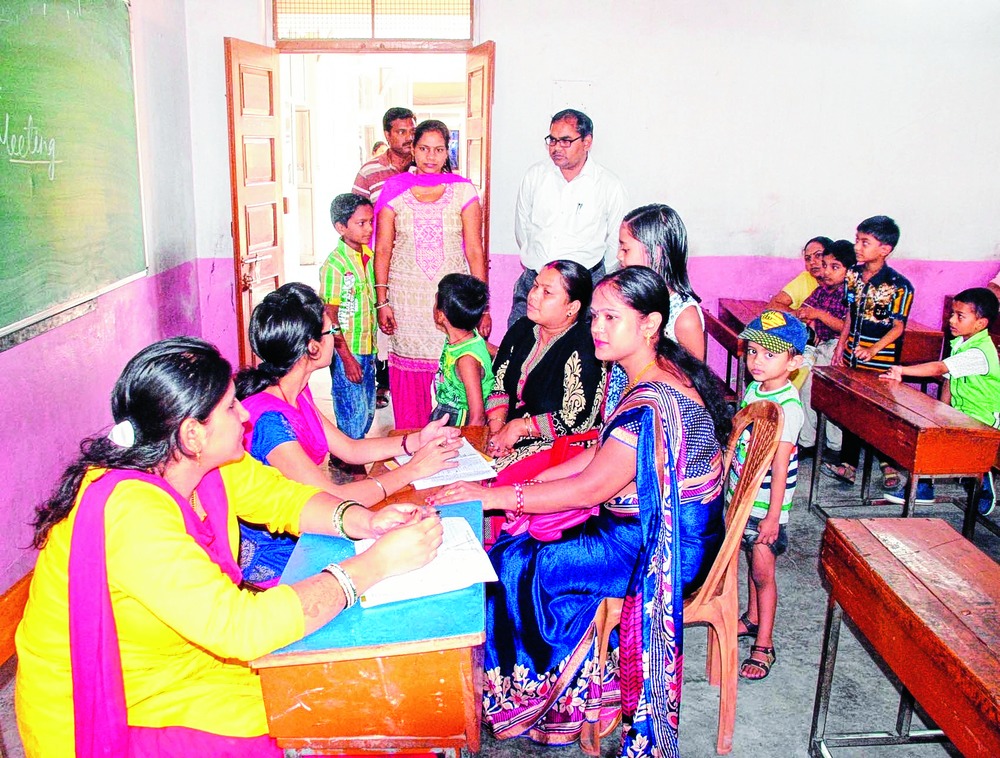
Junior students of DAV schools can now bid goodbye to exam blues.
The group has decided to do away with tests from LKG to Class II at all its CBSE-affiliated schools from this month and instead evaluate students on their day-to-day performance, the step aimed at attaining a child-friendly assessment process.
The new assessment procedure, which will even do away with grades, was announced at a parent-teacher meeting at DAV Kapildev, Kadru, on Thursday with the authorities urging the guardians to cooperate to make the system work.
"From now on, there will be no formal examination from LKG to Class II. Instead, students' performance will be assessed with the help of worksheets, checklists and activities during regular classes. The ultimate objective is to reduce examination phobia among children and give them an opportunity to be judged by their play-way activities," a teacher said.
Principal M.K. Sinha, winner of the President award for his contribution in teaching, said they were trying to usher in change in the traditional system of evaluation, part of a process adopted by schools under the DAV banner across the country.
"The changes have been brought at the direction of DAV Centre of Excellence, an apex body of DAV College Managing Committee, to implement guidelines and suggestions of experts to bring positive changes in the education system," Sinha said.
According to him, under the new system of evaluation, there will be no grades on the progress report, but the students of LKG to Class II will be rated as "always", "usually", "sometimes" and "need improvement"against a given skill like "attentive in class" or "able to interact".
"Each and every activity of the children will be marked and mentioned in the progress report. In language skills, their listening, speaking, reading and writing will be assessed, while in cognitive skills, they will be judged during interactions in classes, on their concepts about surroundings, human bodies, family, neighbourhood, animals, plants, relationship between man and his environment, air, water sky, transport, seasons, scientific attitude and healthy habits. Teachers have been trained to undertake this sort of evaluation," principal Sinha said.
Co-ordinator of CBSE schools in Ranchi and principal of Gurunanak Higher Secondary School Manohar Lal, who also recently won the President's award, hailed the initiative as "good". "The CBSE has always been stressing on play-way techniques to teach and assess students," he said.
Lal's school, however, is yet to embrace this system.
But other cradles like Sharda Global School had implemented a somewhat similar model. "Many times, children cannot write though they know the answers. Our system of assessment is almost the same. Except one final formal test, we also judge students of LKG to Class II on the basis of their day-to-day performance," said principal Ranjana Swaroop.
Parents accepted the news with mixed response. "This system is new. We can comment about it only when it will be followed by the school," said Mohammed Kafil Gaddi, whose daughter is in Class II at DAV Kapildev.
Physiotherapist Kalicharan, whose daughter studies a Class I in the same school, was sceptical. "It may hamper the academic performance of children. Examination is good because it teaches the students to be serious about studies. Once they get to realise that they will not have to appear in tests, it will be difficult for parents to make them read and write," he reasoned.
At present, CBSE-affiliated schools, including the DAV group, in the city follow the continuous and comprehensive evaluation process under which two summative assessment tests and four formative assessment tests are organised in a year for students. One summative assessment test is held in September and another in February. Before each summative assessment test, two formative assessment tests are conducted.
There are 45 CBSE schools in the state capital. Out of them, 17 are run by DAV.










